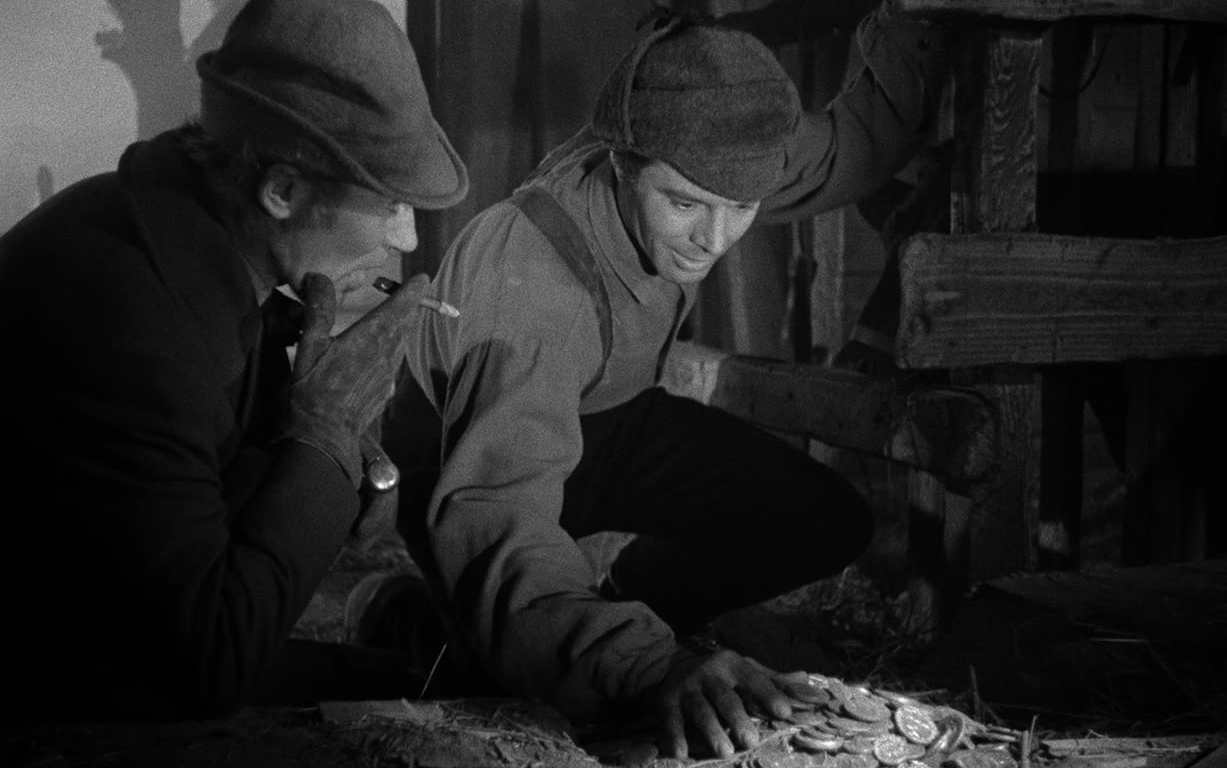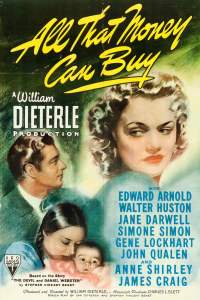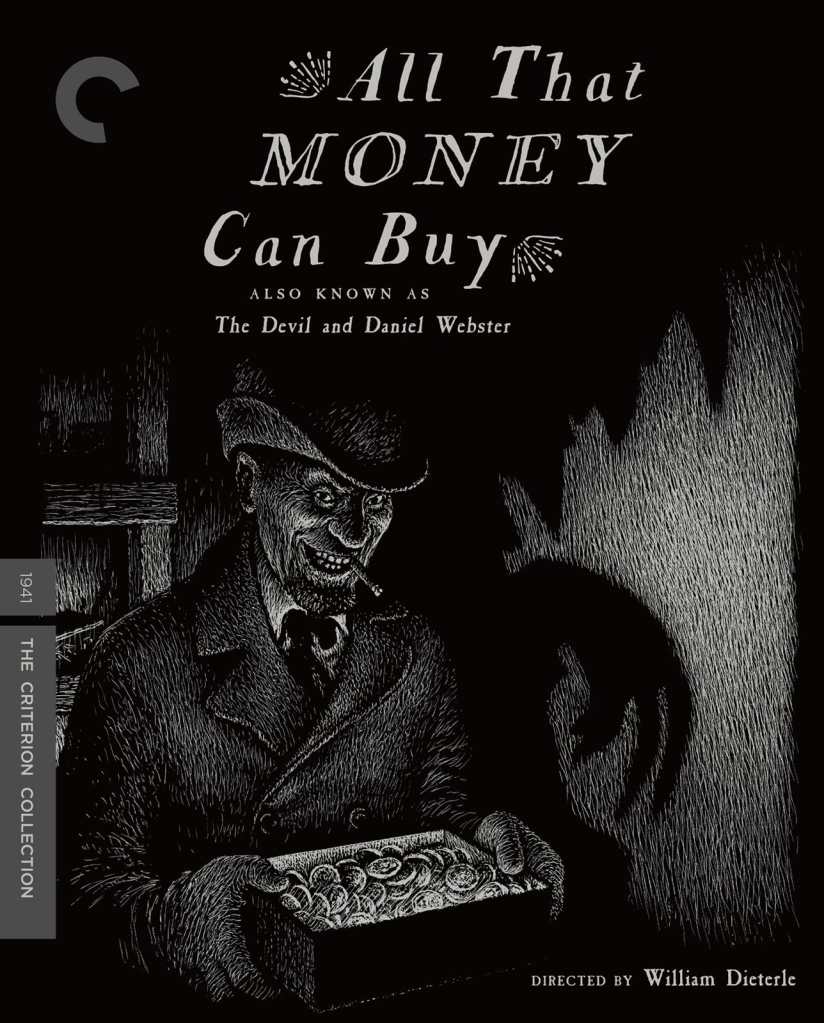Some people have all the luck, but Jabez Stone is not some people. He’s a New Hampshire farmer with little more to show than the mortgage he owes Miser Stevens. And he’s not the only one: All the farmers in the area owe Stevens. “When they were handing out hard luck, the farmer got there first,” Jabez sighs.
Released in 1941 but set in 1840, All That Money Can Buy must have rang true with a large section of the American population. War was raging in Europe, and by year’s end, Japan would attack Pearl Harbor, and the U.S. would join the fight. But in October ’41, the shadow of the Depression still blanketed the nation.
Depressions and recessions are no longer our main concerns—despite continually climbing living costs—but a fracturing nation is. In that regard, viewers in 2024 are more likely to find prescient echoes in All That Money Can Buy pre-Civil War fears and frustration. Funny, isn’t it, how the past is always present.
Adapted from the short story The Devil and Daniel Webster by Stephen Vincent Benét and directed by the German émigré William Dieterle, All That Money Can Buy is a movie so audacious, so stylish, so outré it ought to be better known. Filmmakers in the 1940s had many rules and guardrails to watch out for. And they found just as many ways around them.
Benét’s story reworks Goethe’s Faust with the weak-willed Jabez (James Craig) confronted by the mischievous Mr. Scratch (Walter Huston). Scratch “discovers” a pile of Hessian gold coins in Jabez’s barn and offers them to the poor farmer for a tiny trade. Jabez barely hesitates, signs Scratch’s contract without reading it, and races off to town to pay off Stevens (John Qualen), buy his wife (Anne Shirley) a new hat, and start living the good life.
The discovery of money fixes Jabez’s problems, but his neighbors are still in hot water. So, he bails them out with Stevens—for a fee, of course—and quickly grows to resent them for not being as hardworking and successful as he is. Last season, Jabez hated Stevens and anyone with money who refused to help out the little guy. Now, Jabez has lapped Stevens by a mile.

All That Money Can Buy leans hard to the left, especially in the character of Daniel Webster (Edward Arnold), more myth than man here, who laments that a nation fixated on commerce and property will divide itself over who owns what. Those are the moments where All That Money Can Buy plays like perfectly ripe fruit today. And if that sounds didactic and preachy, it is. Not that you’d notice, thanks to Dieterle’s spooky storytelling, cinematographer Joseph August’s expressionistic lighting, Bernard Herrmann’s playful and ethereal score, Huston’s folksy performance as the great tempter, and the witchy presence of Belle (Simone Simon), who comes to the Stones as a nanny but has another role for herself in mind. Yes, when it comes to money and all it can buy, there’s corruption at every level.
Released under three different titles—Here Is a Man, The Devil and Daniel Webster, and All That Money Can Buy—and just as many cuts ranging from 80ish minutes to 106, Dieterle’s film has been fully restored thanks to the hard work of The Film Foundation and the UCLA Film & Television Archive and is available on Blu-ray and DVD from The Criterion Collection. In addition to the restored film—which looks spectacular—Criterion’s disc includes a restoration demonstration, comparisons between the multiple cuts, several readings of Benét stories, and an informative commentary track from film historian Bruce Elder and Bernard Herrmann biographer Steven C. Smith.
All That Money Can Buy (1941)
Produced and directed by William Dieterle
Screenplay by Dan Totheroh, Stephen Vincent Benét
Based on the short story, The Devil and Daniel Webster, by Stephen Vincent Benét
Starring: Walter Huston, Edward Arnold, James Craig, Anne Shirley, Jane Darwell, Simone Simon, John Qualen
RKO Radio Pictures, Not rated, Running time 106 minutes, Released Oct. 17, 1941



2 thoughts on “ALL THAT MONEY CAN BUY”
Comments are closed.